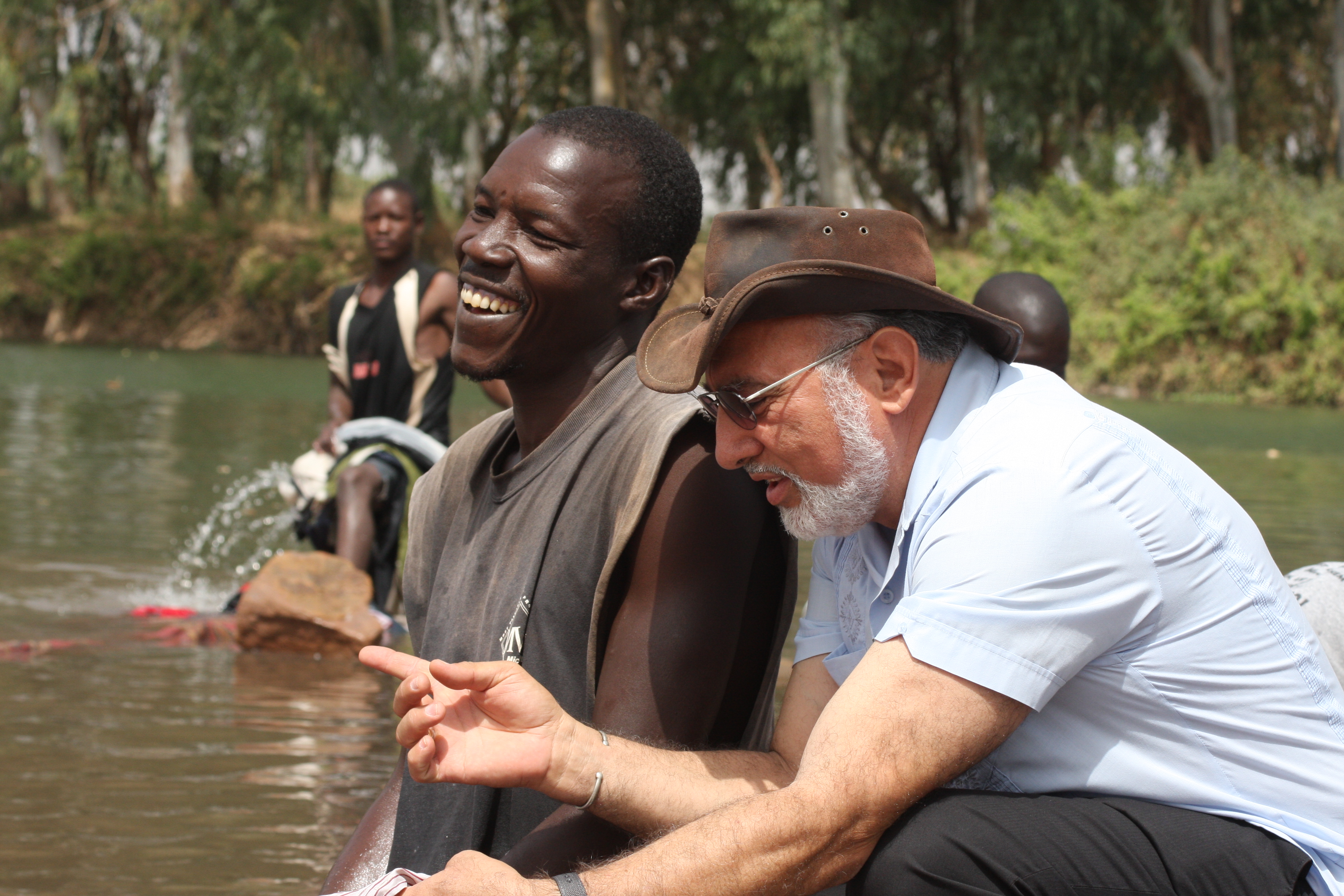This is the third in a 5-part series of articles which undergird all of the content we publish on hesed.com.
As we noted at the end of our last article, Beyond Our Wildest Dreams, the Bible tells us in 1 Corinthians 5:17-21 that God has reconciled Himself to us.
The barrier that separated us from Him — our sin and unbelief — has been eliminated. From His standpoint, there is no longer anything between us that would keep us from having the close, intimate friendship He has always wanted with us. He has taken the first step toward restoring our relationship with Him.
From God’s perspective, there is no longer anything between us that would keep us from having the close, intimate friendship He has always wanted with us. #knowgod
And yet it is implied in that same passage of Scripture that God’s elimination of the barrier between us (His taking the penalty for our sin and disarming the power of our independent spirit), in itself, does not completely restore us to the close, intimate relationship with us that God desires.
WE CAN BE RECONCILED TO GOD
The question remains: Will we take the next step and reconcile ourselves to Him? And what does it actually mean to reconcile ourselves to Him?
The key to understanding what it means to reconcile ourselves to God lies in a further examination of what occurred when (as we’ve already described) Jesus died for our sins, was buried, and rose from the dead — and then considering the second aspect of biblical belief we hinted at near the end of our last article.
JESUS THE ENTHRONED KING
As we said in our last article, when Jesus died on the cross, He took the penalty and consequences of our sin upon Himself. And then when He rose from the dead, he disarmed sin and its power over us.
But that is not the end of the story.
When Jesus rose from the dead, He was then enthroned as king over all of creation.
Philippians 2:6-11 tells the story of Jesus’ life, death, resurrection, and enthronement in this way:
Jesus is now actively ruling over creation. He is the Son of God in power. He is Lord.
THE NATURE OF BIBLICAL FAITH
While His actions on our behalf (taking the penalty for our sin in His death and rendering our independent spirit powerless in His resurrection) elicit a response of dependence from us (we cast our lives entirely upon Him as our only hope for entering into a close, intimate friendship with God), His position of authority as the enthroned king elicits a response of dedication from us.
We swear allegiance to Jesus our king.
Have you cast yourself upon the sacrifice of Christ as your only hope? And have you sworn allegiance to Jesus the King? #knowgod
This is the second aspect of biblical belief that we hinted at in our first article.
To reconcile ourselves to God as an expression of biblical faith, then, has two primary aspects (each of these two aspects presupposes mental assent to the facts laid out in the Bible about Jesus’ life, death, and resurrection and their purpose in mankind’s history):
1. In response to what He has done on our behalf, we cast our entire lives upon the death and resurrection of Christ as our only hope for ongoing intimate friendship with God, for a future life in heaven, and for a fulfilled life today.
We do not look to people or things — spouses/partners, cars, houses, large bank accounts, friends, college degrees, success in our jobs, stable families, etc. — for ultimate fulfillment. None of these can ultimately satisfy.
In reconciling ourselves to God, we transfer our trust from the things of this world to Jesus.
2. In response to who He is, to His position of authority over all creation, we swear allegiance to Jesus our king.
We are not loyal to any thing or any person — families, possessions, money, boyfriend, girlfriend, education, career accomplishments, etc. No other thing or person is worthy of our loyalty.
In reconciling ourselves to God, we transfer our allegiance from the things of this world to Jesus.

THE RESULT OF BIBLICAL FAITH
The inevitable result of biblical faith (casting oneself entirely upon the sacrifice of Christ and swearing allegiance to Him as king) is a life of discipleship.
2 Corinthians 5 is replete with references to this life of following Jesus, the one who gave Himself for us and is now enthroned as king:
Our ambition should be to please God (verse 9). We will appear before the judgment seat of Christ to be rewarded for our deeds (verse 10). We are well-acquainted with fear of (reverence for) the Lord (verse 11). We do not live for ourselves, but for Him who died and rose on our behalf (verse 15). We are a new creation — old things have passed away and new things have come (verse 17).
This aspect of belief is expressed in the numerous instances when Jesus calls people to follow Him:
- in His calling of Simon and Andrew (Matthew 4:18-19, Mark 1:17)
- in His calling of Philip (John 1:43)
- in His calling of the disciple who wanted to bury his father (Matthew 8:21-22, Luke 9:59)
- in His calling of Matthew (Matthew 9:9, Mark 2:14, Luke 5:27)
- in His instructions to the twelve disciples (Matthew 10:38)
- in His proclamation that He is the light of the world (John 8:12)
- in His statement when Philip and Andrew told Him some Greeks wanted to see Him (John 12:26)
- in His prediction of His upcoming death (Matthew 16:24-25, Mark 8:34-35, Luke 9:23-24)
- in His conversation with the rich young ruler (Matthew 19:21, Mark 10:21, Luke 18:22)
- in His post-resurrection conversation with Peter (John 21:19,22)
Following Jesus — our life of discipleship — is proof that we have reconciled ourselves to Him.
AN INVITATION TO THOSE WHO HAVE NOT YET RECONCILED THEMSELVES TO GOD
As we said in the first article in this series, God has reconciled Himself to you. Through his death and resurrection, he has eliminated the barrier of sin and unbelief which earlier lay between you and Him. The next step in the process is for you to reconcile yourself to God.
To reconcile ourselves to God — to cast yourself entirely upon the sacrifice of Christ as your only hope and to swear allegiance to Him as king so as to enter into a close, intimate friendship with Him — is a simple and yet profound decision. If you have yet to make that decision, please don’t hesitate to contact us. We would be thrilled to introduce you to people in your local area who can answer your questions, encourage you in your journey on the path to faith and discipleship, and guide you as you contemplate the life-changing step of reconciling yourself to God.
AN INVITATION TO THOSE WHO HAVE RECONCILED THEMSELVES TO GOD
Part of our life of discipleship, of following Jesus, is obeying His commands. And one of those commands is found in Mark 16:15 — “Go into all the world and preach the gospel to all creation.”

In the next article in this series, Our Hearts Aflame, we will explore this command in more depth.

Leave a Reply